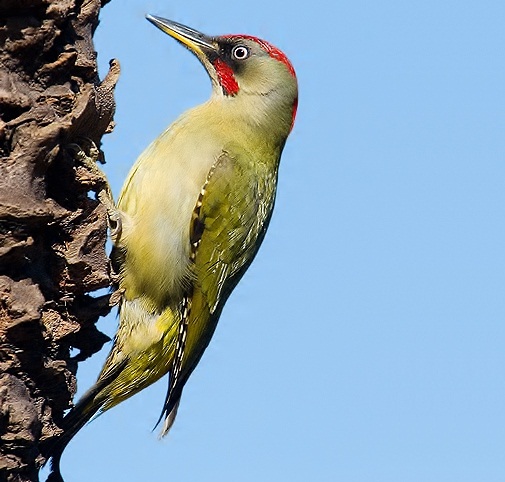Picus viridis
 |
| Photo by Angel Domínguez (Photo.net) |
Common name:
Taxonomy:
Order Piciformes
Family Picidae
Range:
This species is found throughout Europe, with the exceptions of Iceland, Ireland and the northernmost parts of Scandinavia. It is also present in north-west Africa and western Asia.
Size:
The green woodpecker is 30-36 cm long and has a wingspan of 45-51 cm. They weigh 140-200 g.
Habitat:
This species is usually found in semi-open landscapes with small woodlands, hedges, scattered old trees, edges of forests, floodplain forests and in wooded gardens and parks. They also forage in areas of grassland, heaths, plantations, orchards, lawns and even sand dunes.
Diet:
Unlike other woodpeckers, the green woodpecker does most of its foraging on the ground. This species is specialized on ants, particularly Formica and Lasius. They will also eat other arthropods, mainly flies, mosquitoes and spiders, and occasionally also worms, berries, seeds and even small fruits.
Breeding:
They breed in April-July. Male and female both contribute to nest construction, excavating a hole in a rotting tree trunk. There the female lays 5-8 white eggs, which are incubated by both parents for 17-19 days. The chicks are fed by both parents and fledge 21-27 days after hatching. Each pair only raises a single clutch each year.
Conservation:
IUCN status – LC (Least Concern)
The green woodpeckers has a very large breeding range and a global population estimated at 2-5 million individuals. The population trend is stable and there is no evidence for any significant threats.







